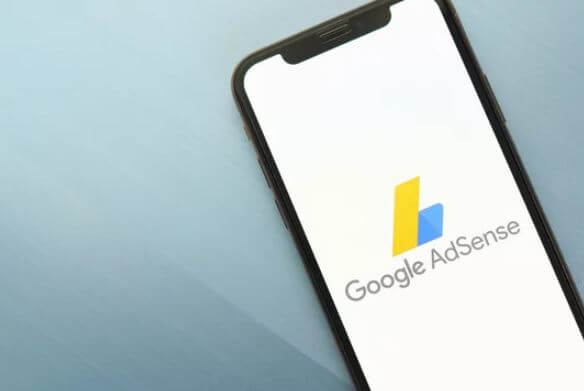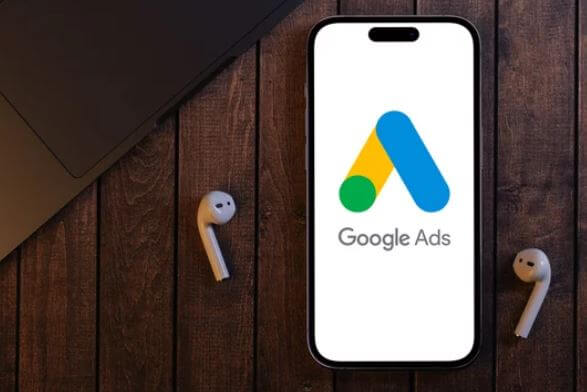The digital landscape is vast, multifaceted, and continuously evolving. At the epicenter of this landscape is Google, a titan that offers unparalleled advertising tools to empower businesses and monetize websites. Two flagship platforms under its belt are Google AdWords, now called Google AdWords vs. AdSense. For the uninitiated, distinguishing between these two platforms can be a Sisyphean task. To eradicate such confusion and propel your online endeavors to new heights, here’s an unrivaled guide to Google’s dynamic advertising duo.
1. Google Ads (formerly AdWords): Lighting the Path to Visibility
Google Ads is the veritable golden goose for businesses eager to generate leads, drive website traffic, and foster product sales. It is the stage where companies pay to showcase their adverts directly on the Google search results page.
Key Features of Google Ads:
- Targeted Reach: Precision is its middle name. Pinpoint your audience based on location, age, interests, and more.
- Pay-Per-Click (PPC) Model: A wallet-friendly model where advertisers only foot the bill when users click on their ads.
- Detailed Analytics: Measure your campaigns’ success, get insights, and fine-tune them for the best results.
2. Google AdSense: The Powerhouse of Monetization
Opposite its Ads counterpart, Google AdSense caters primarily to website owners who are in the business of selling ad space. It’s the magic wand that can turn your website’s traffic into treasure.
Key Features of Google AdSense:
- Automated Ad Selection: Google’s algorithms decide which ads to display, ensuring relevance and potentially higher earnings.
- Flexible Ad Formats: From video to rich media, choose various formats to suit your website’s aesthetics.
- Monetization On-the-go: Regardless of your site’s niche or traffic volume, there’s a potential to earn.
3. Drawbacks & Advantages: Adwords vs. Adsense
While both platforms serve unique functions, they’re not without their Achilles’ heels. But, just as night follows day, where there’s a drawback, there’s a silver lining waiting to be explored.
AdWords/Ads:
- Pros: Immediate visibility on Google, robust targeting options, and scalability according to budget.
- Cons: It might prove costly for highly competitive keywords, requires constant optimization, and can be time-consuming.
AdSense:
- Pros: Passive income stream, a vast pool of advertisers, and tailored ad selection.
- Cons: Revenue depends on website traffic and niche, potential account suspension issues, and can be affected by ad blockers.
4. Integration Possibilities: Harnessing Dual Power
Might you be thinking, “Can I use both?” Absolutely! The synergistic relationship between Google Ads and AdSense is something of a legend. Promote your business via Ads, and if you have a site brimming with content, monetize it with AdSense: two birds, one stone.
5. Conclusion: Charting the Course
In the vast seas of digital advertising, Google Ads and AdSense are two formidable lighthouses. The former ensures your business doesn’t fade into obscurity and transforms traffic into tangible earnings.
To thrive in the turbulent digital ecosystem, understanding these tools isn’t just beneficial—it’s vital. So, whether you’re a business aiming for the zenith or a website owner looking to profit from every click, you harness the unparalleled power of Google’s advertising marvels. Dive deep, explore, and let the digital waves carry you to unmatched prosperity.
FAQs
Which is better, Google Ads or AdSense?
Google Ads and Google AdSense serve different purposes and are used by other parties in the digital advertising ecosystem. Let’s break down the differences between the two:
- Google Ads: Google Ads (formerly known as Google AdWords) is an online advertising platform that allows businesses to create and manage ads that appear on Google’s search engine results pages and other websites and media within the Google Display Network. These ads can appear as text-based search ads, display ads, video ads, app ads, and more. Google Ads operates on a pay-per-click (PPC) or pay-per-impression (CPM) model, where advertisers bid on specific keywords or audience segments to display their ads to relevant users. Google Ads is primarily used by businesses looking to promote their products or services and drive targeted website traffic.
- On the other hand, Google AdSense is a program that allows website owners and publishers to monetize their online content by displaying Google ads. Publishers can choose from various ad formats and sizes. When visitors interact with these ads (clicks or impressions), the website owner earns a portion of the advertising revenue generated by Google. AdSense is used by content creators, bloggers, website owners, and other online publishers to generate income from their online properties.
In terms of “which is better,” it depends on your role and goals:
- Advertisers: If a business wants to promote your products or services and drive targeted traffic to your website, Google Ads is the better option. It allows you to reach potential customers actively by searching for relevant keywords or browsing websites related to your industry.
- Publishers: If you’re a website owner or content creator looking to monetize your online content, Google AdSense is the better option. It allows you to earn revenue from the ads displayed on your website based on user interactions with those ads.
It’s not a matter of one being “better” than the other; they serve different purposes in the online advertising ecosystem. Additionally, both platforms are operated by Google and are designed to complement each other, providing a comprehensive advertising solution for businesses and publishers alike.
Can I use AdWords and AdSense together?
You can use Google Ads (formerly known as Google AdWords) and Google AdSense together. Many website owners and businesses use both platforms in a complementary manner to maximize their online advertising efforts. Here’s how they can work together:
- Using Google Ads to Drive Traffic: If you’re an advertiser looking to promote your products or services, you can use Google Ads to create and manage your advertising campaigns. You can bid on relevant keywords and create targeted ads on Google’s search engine results pages and across the Google Display Network. This can help drive relevant traffic to your website.
- Monetizing Your Website with AdSense: If you own a website or publish online content, you can sign up for Google AdSense. Once approved, you can place an AdSense ad code on your website. Google will then automatically display ads relevant to your content and audience. When visitors interact with these ads (by clicking on them or viewing them), you earn a share of the advertising revenue.
By using both Google Ads and Google AdSense together, you can potentially achieve the following benefits:
- Increased Revenue: If you’re an online publisher, you can earn revenue from AdSense ads while simultaneously driving traffic to your website through Google Ads.
- Cross-Promotion: If you’re both an advertiser and a publisher, you can promote your products or services using Google Ads and monetize your website using AdSense ads.
- Audience Targeting: Advertisers can use AdSense’s data to understand better their website visitors’ interests and demographics, which can inform their Google Ads campaigns.
- Testing and Optimization: By running both advertising and monetization efforts, you can gain insights into ad performance, user behavior, and audience engagement, allowing you to refine your strategies over time.
Remember that both platforms have policies and guidelines, and you should ensure that you adhere to them while using them together. Google provides resources and support for both advertisers and publishers using these platforms, so you can refer to their official documentation for more information on how to use Google Ads and AdSense effectively together.





